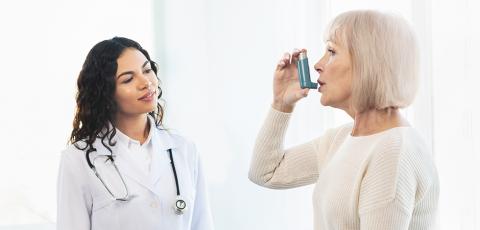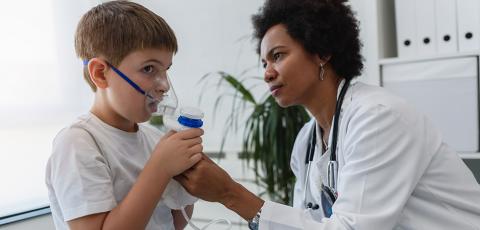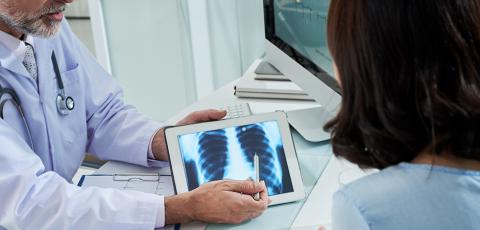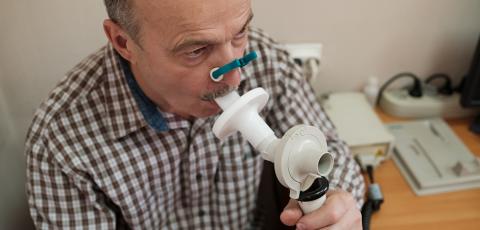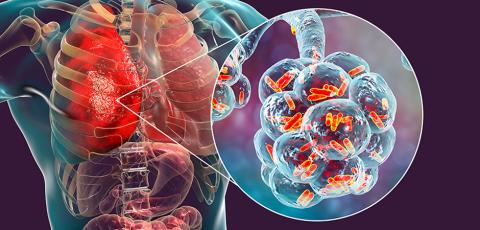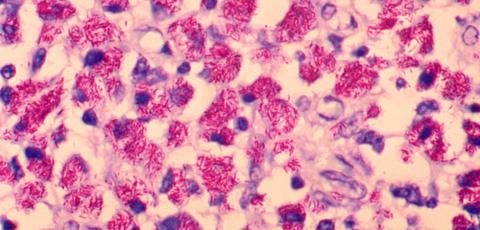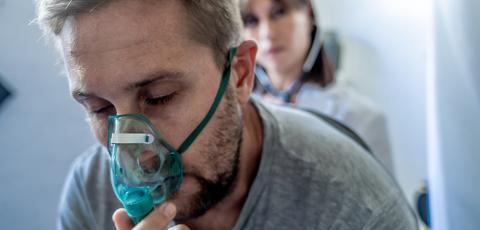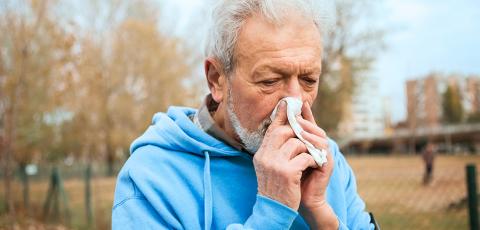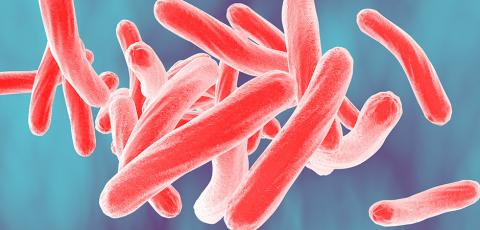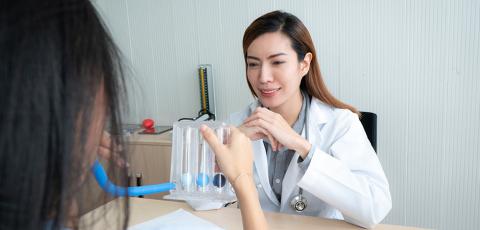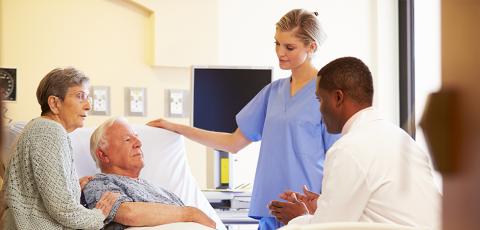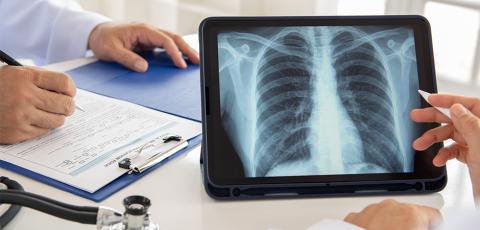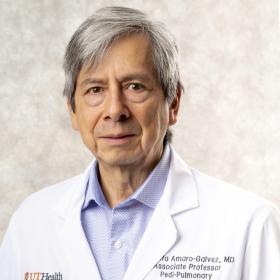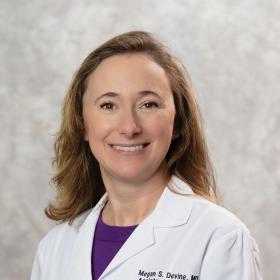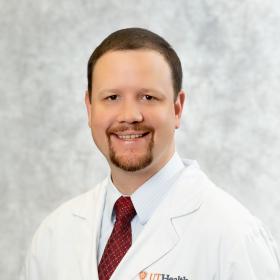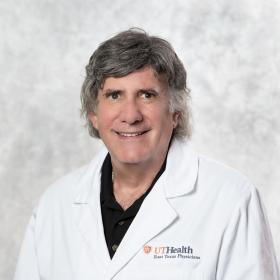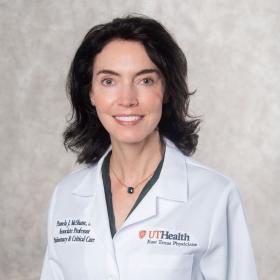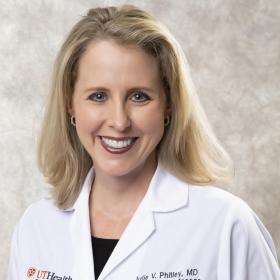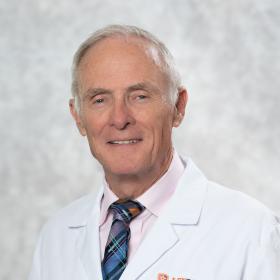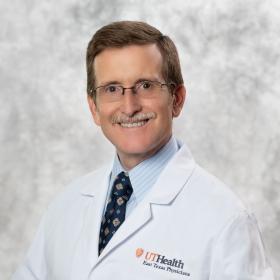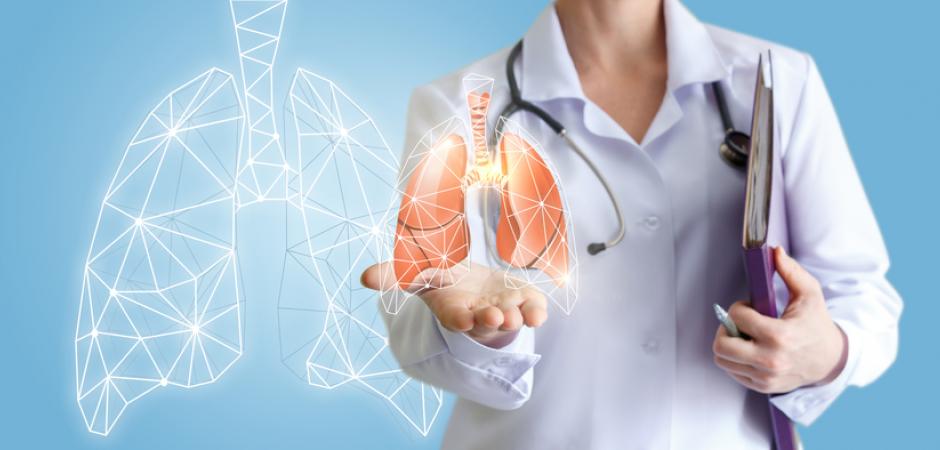
Breathe easier with the largest team of providers in the region dedicated to diagnosing and treating lung disease. The UT Health East Texas Pulmonary Institute team is trained to diagnose and treat a number of disorders that involve the respiratory system. We offer the latest treatments and techniques by using state-of-the-art technology. We treat the most common, as well as the rarest, lung diseases.
We offer clinics as well as diagnostic testing and imaging throughout East Texas. Clinic locations include: Athens, Carthage, Gun Barrel City, Henderson, Jacksonville, Palestine, Pittsburg, Quitman and Tyler. Advanced procedures and surgeries are performed at UT Health Tyler.
Click on a service or condition to learn more
To learn more or schedule an appointment, call:
UT Health East Texas Pulmonary Institute at North Campus Tyler at 903-877-7916
UT Health East Texas Pulmonary Institute at S. Fleishel - A department of UT Health Tyler at 903-592-6901
Overview
State-of-the-art technology, the newest treatments and techniques and clinical research are at work here every day to help extend and improve the quality of life for patients.
Diagnosing and Treating Lung Diseases
From more common lung diseases like pneumonia, asthma and chronic obstructive pulmonary disease (COPD) to rare conditions like Alpha 1-antitrypsin deficiency and sarcoidosis — patients are in excellent hands here. UT Health is home to the largest team of physicians in Northeast Texas dedicated to diagnosing and treating lung diseases.
To make an appointment, call 903-877-7916.
Conditions we commonly treat include:
- Lung diseases
- Abnormal chest x-rays
- Alpha-1 antitrypsin deficiency
- Asthma
- Bronchiectasis
- Cancers of the chest (lung, chest wall, and cavity)
- Chronic bronchitis
- Chronic cough
- Chronic Obstructive Pulmonary Disease (COPD)
- Chronic respiratory failure
- Cystic fibrosis
- Emphysema
- Occupational lung disease
- Pneumonia
- Pulmonary embolism
- Pulmonary fibrosis
- Sarcoidosis
Pulmonary function tests offered
How much air can your lungs hold? How quickly can you move air in and out? How well can your lungs take in oxygen and remove carbon dioxide from your blood? Pulmonary function tests provide answers to these questions. They allow physicians to diagnose the existence and severity of lung diseases and also indicate how well lung treatments may be working. Among the examinations offered at the Ralph and Mary Prince Pulmonary Center at UT Health North Campus Tyler on an outpatient basis are:
- Cardiopulmonary exercise test (CPET) – a highly sensitive, non-invasive stress test. A CPET assesses how well the heart, lungs, and muscles are working individually, and how these systems are working in together.
- Compliance test – diagnose a variety of lung conditions by checking the stiffness or elasticity of the lungs with the aid of a balloon catheter.
- Fractional exhaled nitric oxide (FeNO) – assists in the diagnosis and management of a variety of lung diseases, especially allergic asthma. Nitric oxide produced in the breathing passages is a marker of allergic inflammation.
- Gas exchange tests (DLCO) – measure how much oxygen passes from the lungs to the blood, which is important in diagnosing many lung diseases.
- Inspiratory and expiratory muscle pressures (PI and PE max) – evaluate possible neuromuscular disease by gauging the pressures generated by the respiratory muscles.
- Lung volume measurements – detect restrictive lung diseases that prohibit complete inhalation of air. Restrictive lung diseases may be caused by inflammation or scarring of the lung tissue or by abnormalities of the muscles or skeleton of the chest wall.
- Maximal voluntary ventilation (MVV) – measures the amount of air that can be inhaled and exhaled in one minute to assess the overall function of the respiratory system.
- Methacholine challenge tests – require inhalation of a mist solution of the drug methacholine, which causes twitching in the airways of people who have asthma or asthma-like conditions. Changes that may occur in the lungs are monitored during the test and are reversed with albuterol, a drug normally used to treat asthma.
- Oxygen titration tests – determine if a patient using oxygen at home is receiving the proper levels of oxygen and if continued oxygen therapy is needed.
- Spirometry – diagnoses obstructive lung diseases that cause resistance to exhaling, such as asthma and chronic obstructive pulmonary disease (COPD). Spirometry is one of the most common pulmonary function tests.
- Arterial blood gas analysis
- Echocardiography for assessment of Pulmonary Hypertension
- Exercise challenge for airway reactivity (similar to Methacholine Challenge but treadmill is used instead of chemical)
- Bronchoscopy
- 6 Minute Walk testing for oxygen qualification
Same-day testing is available for UT Health North Campus Tyler patients.
Infectious Lung Diseases
During a normal day, we breathe nearly 25,000 times, exposing our bodies to millions of microorganisms that populate the atmosphere. The bacteria, viruses, and fungi that invade the lungs can cause common diseases like the flu or pneumonia. But for those with a weakened immune system, these infectious organisms can also cause rare lung diseases like tuberculosis (TB) and mycobacterial infections that can be hard to diagnosis and also hard to treat.
Fighting Infectious Diseases
Our adult and pediatric infectious lung disease experts are nationally known for their advanced skill in treating rare and uncommon lung infections, including Mycobacterium Avium Complex (MAC) and TB. Though relatively rare, MAC causes serious and chronic lung infections, striking people who already have other lung diseases such as asthma, bronchiectasis, chronic bronchitis or cystic fibrosis. And while TB may seem like a disease of the past, it kills more than a million people worldwide each year. Learn more about MAC research and treatment and discover our expertise in battling TB across nine states.
To make an appointment, call 903-877-7916.
Conditions We Commonly Treat
- Actinomycosis
- Fungal infections of the lung
- Nocardiosis
- Nontuberculous mycobacteria
- Tuberculosis, including multi-drug resistant TB
Cystic Fibrosis
About Cystic Fibrosis
Cystic fibrosis (CF) is a chronic disease that affects the lungs and digestive system. A defective gene causes the body to make thick, sticky mucus that clogs the lungs and causes serious lung infections. CF also affects other organs of the body and can prevent the break down of food and absorption of important nutrients. About 30,000 children and adults in the United States are affected by CF.
Taking a Team Approach
Besides our pulmonologists, there are other healthcare professionals that are there for the patient’s journey. This care team may include a nutritionist, social worker, respiratory therapist, pharmacist, and/or physical therapist. The CF clinic at UT Health North Campus is unique because treatment for all ages is in one location and the same team cares for patients throughout the different stages of life – from childhood to adulthood.
Caring for East Texas
Accredited by the Cystic Fibrosis Foundation®, we are the premiere Cystic Fibrosis Center serving Northeast Texas. Our center follows the stringent standards of the CF Foundation and uses approved guidelines for treatment.
The Cystic Fibrosis Center is also a member of the Cystic Fibrosis Foundation® Therapeutics Development Network – the largest CF clinical trials network in the world that brings together experts from across the country to evaluate the safety and effectiveness of new CF therapies through clinical studies. Call 903-877-5271 to make an appointment.
Our Pediatric and Adult Services
Evaluation
UT Health is the only referral site in Northeast Texas for a sweat test, the diagnostic test for CF. When results are positive, then patients are referred to our CF clinic for further testing, which includes a complete history check, physical exam, and diagnostic studies.
Care
We follow up with every patient diagnosed with cystic fibrosis, monitoring their growth, response to treatment, and any complications that might occur. These follow-up appointments occur every three months and can include:
- Physician assessments
- Meeting with nutritionist and/or social worker
- Laboratory testing
- Annual blood work and chest x-rays
- Pulmonary function testing
Children
It’s not uncommon for babies, children, and teens to experience lung or breathing problems as their bodies grow and develop. Symptoms of respiratory complications can include chronic cough, difficulty breathing, recurring pneumonia or lung infections, and noisy breathing. Children suffering from chronic respiratory or breathing problems are often referred to a physician who is expertly trained in pediatric pulmonary medicine.
Breathe Easier
UT Health North Campus is home to the region’s only board-certified pediatric pulmonologist. Our pediatric pulmonologist and clinical staff have the expertise in caring for children — from infancy to age 18 — with breathing problems. We offer a full range of diagnostic testing and treatment so children can breathe easier.
To make an appointment, call 903-877-5271.
Lung conditions we commonly treat include:
- Asthma
- Chronic lung disease
- Chronic cough and wheeze
- Congenital lung and airway conditions
- Cystic fibrosis
- Recurrent pneumonia
- Respiratory insufficiency
- Unusual respiratory infections
Testing and Procedures We Perform
- Bronchoscopy
- Bronchoalveolar lavage
- Laryngoscopy
- Oxygen and carbon dioxide monitoring
- Pulmonary function testing (PFT)
- Sleep studies
- Sweat testing for cystic fibrosis
- Thoracentesis
Pediatric sleep conditions Dr. Amaro Galvez commonly treats include:
- Sleep apnea
- Disorders in control of breathing
- Restless leg syndrome
- Periodic limb movement disorder
- Circadian rhythm disorder
- Narcolepsy
- Difficulty falling asleep or maintaining sleep
- Insomnia
- Daytime sleepiness
- Sleepwalking, sleep talking, and sleep terrors
- Nightmare


